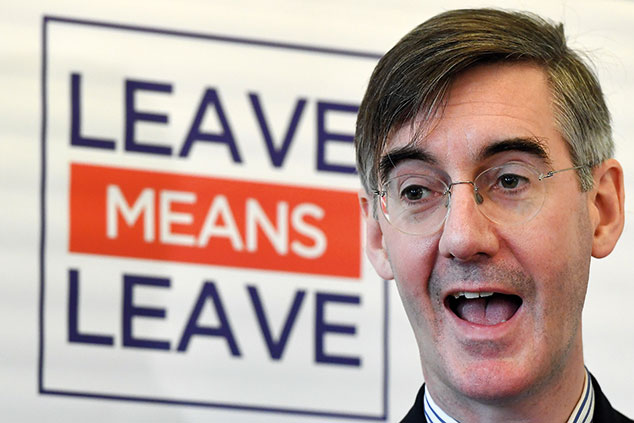
Leave may have broken the rules – but did it matter? Matthew Partridge reports.
The eruption of a scandal over the financing of the Leave campaign in the 2016 Brexit referendum “was not perhaps the most propitious way in which to celebrate [the] first anniversary of Theresa May’s letter invoking the Article 50 process for leaving the European Union”, says The Economist.
Even as arch-Brexiteer Jacob Rees-Mogg “was ridiculing Remainers as being like the Japanese soldier who surrendered only 30 years after the second world war”, both Parliament and the Electoral Commission, the elections watchdog, were investigating claims by a whistleblower that the official Vote Leave campaign broke the spending cap by handing £625,000 to another group, BeLeave, and told it how to spend the money. “If such co-ordination were proved, it would be a criminal offence.”
No harm, no foul
“Let’s not be sidetracked here,” says Allison Pearson in The Daily Telegraph. The referendum result wasn’t due to “dirty tricks, brainwashing and the Leave campaign cheating by evading the legal spending cap”. It was the result of “millions of people deciding that, on balance, they’d rather not have their country’s affairs dictated by the cognac-soaked Jean-Claude Juncker”.
Yes, there’s lots of hype about dubious tactics and online ads devised by Cambridge Analytica, a political research group accused of misususing Facebook data, but studies clearly show that “the effects of targeting consumers using personality data are very small”. Far from being a “slick psychometric persuasion machine”, Cambridge Analytica is “nothing more than a bunch of snake-oil salesmen making outlandish claims for a dodgy product”. Focusing on this “irrelevant” outfit ignores the point that the Remain campaign were hardly helpless, adds Dominic Lawson in the Daily Mail. Every mainstream political party and “almost every institution in the land” backed Remain.
Buyer’s remorse
“I was a Vote Leave campaigner during the EU referendum campaign in 2016”, but even I find the latest allegations to be “serious and troubling”, says Dami Olatuyi in The Guardian. Coming on top of the fact that “the government hasn’t consulted the public at all on the kind of Brexit it wants, evidence of possible cheating and unethical practices further undermine the referendum’s legitimacy”. A re-run of the vote would “defeat the purpose of the first one”, but the scandal makes it clear that “it is vital that the UK has another, separate referendum on the terms of the final exit arrangement”.
That’s unlikely to happen, says Wolfgang Münchau in the Financial Times.“The window for a successful revocation of Brexit is closing, and we may already be past the time where it can be reopened.” In theory, Parliament could subject the details of withdrawal to a referendum, but the fragmentation of the opposition between those who want a second referendum and those who “reluctantly accept Brexit and want to move on” means there is little effective pressure for this: importantly, the Labour leadership does not back it. Remainers should “stop the second referendum fantasies and focus on the period after Brexit”.
May’s mis-steps have put justice in crisis
“Britain’s criminal justice system is in disarray,” says The Guardian’s Simon Jenkins. The head of the Crown Prosecution Service is resigning “amid rows over failed convictions”. The head of the Parole Board has been forced to resign over a controversial decision. Barristers are going on strike, saying that new legal-aid fees don’t cover the cost of taking on cases. We can blame all this in part on the spending cuts that the Conservatives have imposed. While there still is “undoubted waste” in part of the “archaic justice system”, austerity “is clearly biting far below any surface waste” and is “taking a huge gamble with the nation’s domestic security”.
There is clearly a “malaise” in justice and policing that the government “needs to address before things get out of hand”, agrees The Daily Telegraph. The “attempt by a gang of thieves on mopeds to steal a BBC camera used for the Boat Race is symptomatic of how offenders believe they can act with impunity”. And more serious problems include rising violence in London, resulting from young people carrying knives and guns. But this is not just about spending: the fault lies with the “decline in stop and search [of people suspected of illegal activities], brought about when Theresa May was home secretary”.
Some of May’s ministers – including Boris Johnson – are now questioning this decision, says James Forsyth in The Spectator. And Jeremy Corbyn is keen to push crime up the agenda by attacking the cuts in police staff. May badly needs a new strategy. “The Tories are… the party of law and order. But if they can’t halt the rise in crime, they risk losing that tag.”